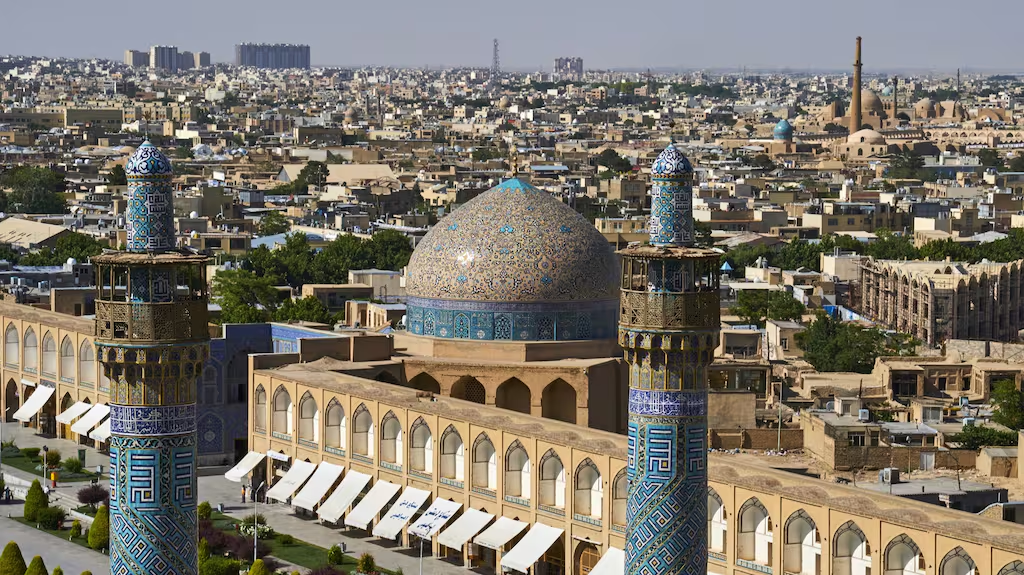By 1news.co.nz and is republished with permission
Iran fired air defence batteries early Friday after reports of explosions near a major airbase at the city of Isfahan, the state-run IRNA news agency reported.

It remained unclear whether the country was under attack. However, tensions remain high after Iran’s unprecedented missile-and-drone attack on Israel. One government official suggested sites may have been targeted by drones.
The Israeli military did not immediately respond to a request for comment.
IRNA said the defences fired across several provinces. It did not elaborate on what caused the batteries to fire, although people across the area reported hearing the sounds.
In particular, IRNA said air defences fired at a major airbase in Isfahan, which has long been home to Iran’s fleet of American-made F-14 Tomcats — purchased before the 1979 Islamic Revolution.
The semi-official Fars and Tasnim news agencies also reported the sound of blasts, without giving a cause. State television acknowledged “loud noise” in the area.
Isfahan is 350km south of Iran’s capital, Tehran, and was also is home to sites associated with Iran’s nuclear programme.
Dubai-based carriers Emirates and FlyDubai began diverting around western Iran about 4.30am (local time). They offered no explanation, although local warnings to aviators suggested the airspace may have been closed.
Iran later announced it grounded commercial flights in Tehran and across areas of its western and central regions. Loudspeakers informed customers of the incident at Imam Khomeini International Airport in Tehran, online videos purported to show.
Iranian state television began a scrolling, on-screen alert acknowledging a “loud noise” near Isfahan, without immediately elaborating.
Hossein Dalirian, a spokesman for Iran’s civilian space programme, said on the X social media platform that several small “quadcopter” drones had been shot down. It wasn’t immediately clear where that happened or if it was part of the ongoing incident in Iran.
Meanwhile in Iraq, where a number of Iranian-backed militias were based, residents of Baghdad reported hearing sounds of explosions, but the source of the noise was not immediately clear.


A backdrop of escalating tension
Earlier, Israel had vowed to respond to Iran’s unprecedented weekend attack, leaving the region bracing for further escalation after months of fighting in Gaza.
Israel’s allies have been urging Israel to hold back on any response to the attack that could spiral.
The US on Thursday vetoed a widely backed UN resolution that would have paved the way for full United Nations membership for a state of Palestine. The vote in the 15-member Security Council was 12 in favour, the United States opposed and two abstentions.
Separately, the US and Britain announced Thursday that they were imposing a new round of sanctions on Iran. The moves came as EU leaders meeting in Brussels vowed to ramp up sanctions on Iran to target its drone and missile deliveries to proxies in Gaza, Yemen and Lebanon.
The US sanctions target individuals and entities that produce engines that power drones and are involved in steel production. The latest British measures target several Iranian military organisations, individuals and entities involved in Iran’s drone and ballistic missile industries.
The Iranian attack on Saturday marked the first time that Tehran had launched a direct military assault on Israel.
Israeli authorities said Iran launched more than 300 drones and missiles, 99% of which were intercepted by air defenses in tandem with the US, Britain, France and Jordan. The attack took place less than two weeks after a suspected Israeli strike in Syria killed two Iranian generals in an Iranian consulate building in Damascus.
Regional tensions have increased since the start of the latest Israel-Hamas war on October 7, when Hamas and Islamic Jihad — two militant groups backed by Iran — carried out a cross-border attack that killed 1200 people in Israel and kidnapped 250 others.
Israel responded with an offensive in Gaza that has caused widespread devastation and killed more than 33,900 people, according to local health officials.







